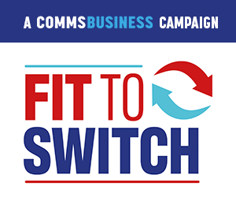
The withdrawal of PSTN services in December 2025 will be a turning point for the Channel, but the real work is happening right now. Now is the time to migrate away from the PSTN, with channel companies needing to move quickly to safeguard their customer bases and get businesses ready for the changes that are coming.
Giacom expects this period to transform all types of channel companies into managed services providers (MSPs), with success resting on making the transition as seamless as possible for businesses.
Dale Parkinson, managing director, connectivity, Giacom, explained, “Businesses are going to have to restack their entire comms infrastructure into an IT-based setting. There is a natural point of convergence between the old telco sector and the MSP community now.”
Parkinson added that improved connectivity will help organisations more firmly bring cloud into their operations. He said, “This will accelerate the adoption of cloud services in UK small businesses as having reliable connectivity into the cloud stack will massively change the level of criticality that is possible.”
This shift to critical connectivity will aid the rise of the MSP as organisations will want channel partners to safeguard their connectivity for them. Parkinson explained, “Pre-switch-off, if my Wi-Fi in my office could be faster, I might grumble about it, but it’s not going to take my business down. Once you restack everything in the cloud, if that service goes down, you’ve got a problem.”
Parkinson emphasised what is at stake for businesses as they move to the cloud, and why MSPs will be a compelling option. If your connectivity service is unavailable in the all-IP world, Parkinson said this will mean: “You can’t get to your call centre, you can’t get to your financials, you can’t get to your accounts. You have nothing, because everything is stacked in the cloud.”
He added, “We can see what’s coming, and we call it the rise of the MSP because small businesses don’t want to have to manage their connectivity. They will need someone to do that for them.”
A ticking clock
With the retirement of the PSTN expected in 2025, time is running out to migrate every business across the UK to alternatives. Parkinson said, “There’s only so much education you can do when you’ve got a ticking clock. We need to galvanise some action. That’s what our biggest concern is.
“Are partners taking the necessary steps early enough to move their existing legacy estate to all-IP and FTTP or SoGEA products? There is a big gap.
“Broadly speaking, across the channel, there is an understanding of what the switch-off is. The best partners have got parts of their website or microsites carved out to educate their customers. But there are the channel partners at the other end of that spectrum who were hoping it would all go away because they were enjoying the revenues they were getting from those analogue products.”
Giacom has created an all-IP managed service to help those partners who need a simpler way to shift customers to alternatives.
Parkinson said, “Our job in the market is to actively provide support to partners to help them. Across the Openreach footprint and the altnet space, we’ve got a brilliant portfolio of vendors, both in voice and in data. We’ve got to connect those two worlds, and that’s where our all-IP managed service fits in.”
Awareness and action
Parkinson reflected that just talking to family and friends outside of the telecoms world illustrates the low awareness across the UK about the changes that are coming.
He commented, “People do not know what the PSTN is, let alone understand the timescales for updating their service and what the options will be.”
Partners, in turn, are hamstrung by limited budget to commence marketing campaigns to increase awareness across their own customer base or in their local area.
Parkinson explained that Giacom has created white-labelled resources to help its partner community spread the word cost-effectively. But he emphasised that more needs to be done to “build sustained momentum that will ensure every phone line is upgraded in time”.
 This is why Giacom has joined Fit To Switch as an all-industry campaign to raise the volume of the voice of the Channel so there is a cut-through across sectors. This will push organisations to start evaluating their options and engaging with channel partners.
This is why Giacom has joined Fit To Switch as an all-industry campaign to raise the volume of the voice of the Channel so there is a cut-through across sectors. This will push organisations to start evaluating their options and engaging with channel partners.
Parkinson explained that Giacom’s aim is simple: “We can take the pain and the fear away for the partner. And we can do the same for the end user.”
The switch-on
One barrier for both channel companies and their customers is the language around the move towards all-IP.
“The language is very negative. It’s all about what’s going to be switched-off, what’s going to be lost, what’s going to be removed,” explained Parkinson. “We want to stop talking about the switch-off and start thinking about it as a switch-on.
“It’s a switch-on of a completely new way for small business customers to consume technology and a completely new opportunity for partners to massively grow their businesses with new services.”
Giacom is doing what it can to alleviate some pressure, and its focus is on removing complexity for channel partners. Parkinson said, “We will make our propositions easy for our partners to buy, and easy for them to sell.”
This interview appeared in our March 2024 print issue. You can read the magazine in full here.
